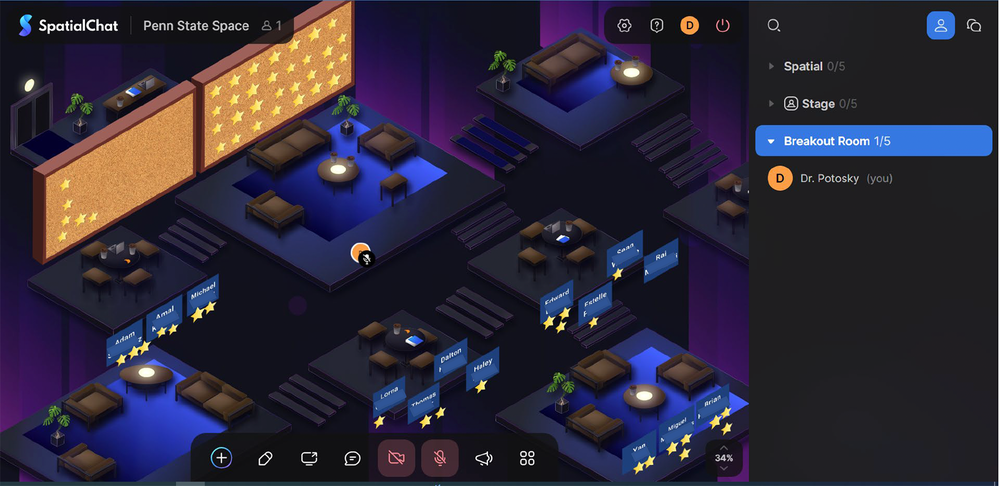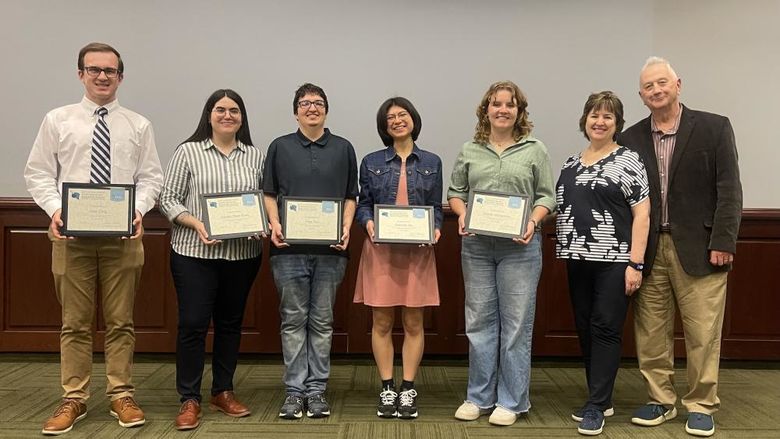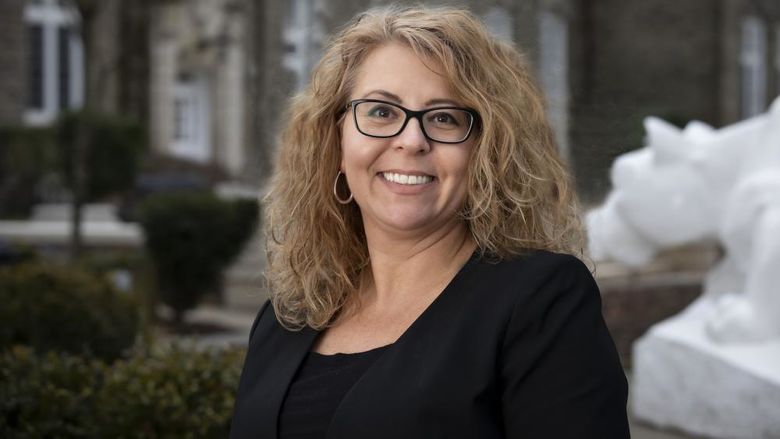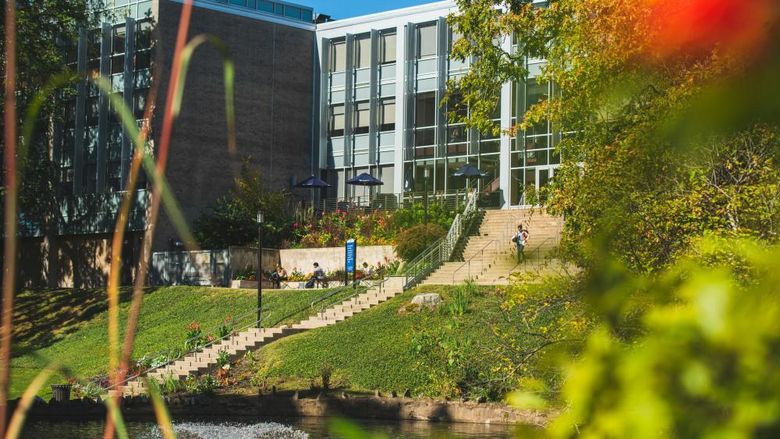
This image shows the SpatialChat Experiential Virtual Space platform setup used by Dr. Denise Potosky in her Behavioral Science in Business course at Penn State Great Valley. She added a bulletin board graphic at the front of the virtual classroom space and used movable gold stars to recognize students for in-class participation.
UNIVERSITY PARK, Pa. — Fourteen Penn State instructors recently worked with Teaching and Learning with Technology (TLT) to enhance student engagement by incorporating experiential virtual spaces in their coursework. Elements of these experiential spaces include a dynamic virtual environment, embedded live video or avatars, spatial and dynamic sound, and free movement within the space.
Their work was part of the 2022-23 TLT Faculty Engagement Awards program. It paired the instructors from eight campuses and three colleges with instructional designers and technology support staff to identify effective in-class uses of a particular technology.
Three participants share how they incorporated the experiential virtual spaces in their teaching during the summer and fall 2022 semesters.
SpatialChat
Denise Potosky, professor of management and organization at Penn State Great Valley, used the technology in MGMT 501: Behavioral Science in Business. She adopted a 75% hybrid format in her graduate-level course last fall to include four online, synchronous class meetings using the SpatialChat Experiential Virtual Space platform.
In the online meetings, students appeared as a basic avatar or with live video from their device camera and could move their avatar anywhere in the virtual space. That freedom allowed them to convene as a class or gather in smaller teams in designated meeting space areas.
Students could hear and see only those closest to them unless they or Potosky used the “megaphone” to speak so that everyone present could hear. They shared Google documents, slide shows, and videos through the screen-sharing function.
Potosky designed her virtual learning activities to reward participation through positive reinforcement. She also emulated traditional, instructor-facilitated classroom discussions by allowing students to communicate with those seated near them or with the whole class.
Dynamic Group Content
Jeffrey Stone, an associate professor of IST at Penn State Lehigh Valley, focused on two sections of GAME 180N: The Art and Science of Virtual Worlds. The course is a remote, synchronous general education course offered through the Digital Learning Cooperative to students from the Lehigh Valley, Brandywine, and York campuses.
The class utilized the Mozilla Hubs virtual environment, and Stone set up a room where students could choose a custom avatar from options including caricature humans, animals, and robots. The platform also allowed Stone and his students to dynamically add content (e.g., images, PDFs, videos) as desired.
While many pre-made layouts are available in Mozilla Hubs, Stone modified one of the layouts to clearly define five group spaces along with a class-wide space. He also integrated group-based, instructional activities within the virtual classroom as part of the weekly class meetings.
Virtual Spaces for Marketing
Theresa Clemente, an assistant teaching professor of business and business internship coordinator at Penn State Wilkes-Barre, utilized the experiential space in BA 321: Contemporary Business Skills, which is offered in a hybrid format. Working in small groups throughout the semester, students conducted research and video interviews with core organizations in the Luzerne County area that aid local entrepreneurs. The groups edited the videos to create a polished, final product.
The experiential virtual space of the Mozilla Hubs platform served as a presentation gallery for the video work, which was also shared with local partner organizations, including the Greater Wyoming Valley Chamber of Commerce.
Students utilized Mozilla Hubs as an alternative presentation platform and wrote a reflection piece about their experience, focusing on the possibilities of virtual spaces for marketing and business purposes.
To learn more about the TLT Faculty Engagement Awards program, please email Amy Kuntz at [email protected].




